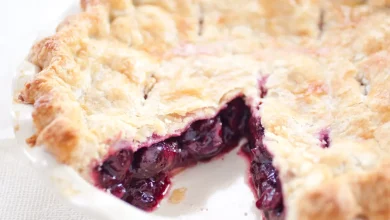👋 Hello! I’d be happy to provide you with a detailed response about anti-itch spray, including its definition, history, components, preparation steps, and the time required to make it.
🌟 What is Anti-Itch Spray?
Anti-itch spray is a topical medication used to alleviate itching and irritation of the skin. It’s designed to provide relief from various causes of itching, including insect bites, rashes, poison ivy, and minor skin irritations. Anti-itch sprays are available over-the-counter and typically contain active ingredients that soothe the skin and reduce the urge to scratch.
📜 History of Anti-Itch Sprays:
The history of anti-itch treatments dates back centuries, with various cultures using natural remedies to combat itching. However, the modern formulation of anti-itch sprays as we know them today can be traced to the development of topical corticosteroids in the mid-20th century. These drugs, such as hydrocortisone, became the foundation for many anti-itch products. Over time, other ingredients like antihistamines and analgesics were incorporated to enhance their effectiveness.
🧪 Components of Anti-Itch Spray:
Anti-itch sprays typically contain a combination of the following components:
- Active Ingredient: This can vary but often includes substances like hydrocortisone (a mild steroid), diphenhydramine (an antihistamine), or pramoxine (an analgesic).
- Inactive Ingredients: These can include water, alcohol, glycerin, and various stabilizers, emulsifiers, and preservatives.
- Propellant: Anti-itch sprays are aerosolized, so they contain a propellant like propane or butane to release the medication in a fine mist.
👨🔬 Steps to Prepare Anti-Itch Spray:
Making your own anti-itch spray at home is possible, but it’s essential to use the right ingredients and follow proper procedures. Here are the general steps:
-
Gather Ingredients: You will need an active ingredient (e.g., hydrocortisone cream), water, alcohol, and an empty spray bottle.
-
Mix Ingredients: Combine the active ingredient with water and alcohol in the desired proportions. The specific formulation can vary, so it’s essential to follow a reputable recipe or consult a healthcare professional for guidance.
-
Stir and Dissolve: Mix the ingredients thoroughly until the active ingredient dissolves completely in the liquid solution.
-
Transfer to Spray Bottle: Use a funnel to transfer the mixture into a clean and empty spray bottle.
-
Label and Store: Clearly label the bottle with the contents and instructions for use. Store it in a cool, dry place away from direct sunlight.
⏲️ Time Needed to Prepare Anti-Itch Spray:
The time required to prepare homemade anti-itch spray can vary depending on your familiarity with the process and the specific recipe you’re following. In general, it should take around 10-15 minutes to gather ingredients, mix them, and transfer the solution into a spray bottle. However, this does not account for any research or consultation you might need to do beforehand to ensure safety and effectiveness.
Remember that commercial anti-itch sprays are rigorously tested and formulated for safety and efficacy. If you have a severe or persistent itching problem, it’s always a good idea to consult a healthcare professional for proper diagnosis and treatment recommendations.
I hope you find this information helpful! If you have any more questions or need further details, feel free to ask. 😊🌿
Certainly! Here are the nutrition facts and health information related to the components commonly found in anti-itch spray:
-
Hydrocortisone (Active Ingredient):
- Nutrition Facts: Hydrocortisone used in anti-itch sprays is a synthetic corticosteroid and is not typically consumed, so it doesn’t have typical nutrition facts.
- Health Information: Hydrocortisone is used topically to reduce inflammation and itching. It should be used sparingly and as directed, as prolonged use can have side effects such as skin thinning or increased susceptibility to infections.
-
**Diphenhydramine (Antihistamine):




